Creative Interventions Toolkit: A Practical Guide to Stop Interpersonal Violence
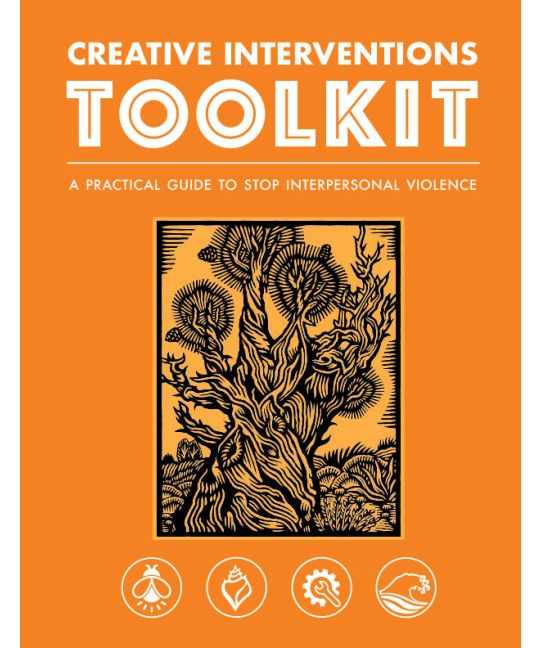
The primary resource on community accountability and transformative justice.
The Creative Interventions Toolkit is a practical guide to community-based interventions against interpersonal violence, a process also known as community accountability or transformative justice. Originally an online resource, it is written for everyday people—survivors, people who caused harm, and friends/family who want to help without turning to the police or government. This toolkit provides basic information about interpersonal violence; advice for survivors of violence and people who have caused harm; guides for people who want to help; a framework to confront and transform violence; and stories from people who have used community-based interventions.
The Creative Interventions Toolkit provides:
- Basic information on the dynamics of interpersonal violence
- Special sections for survivors of violence and people who have caused harm
- Guides for facilitators, friends, and family
- A basic model or framework to confront and transform violence
- Lots of tools for safety, accountability, and coordination
- Stories from everyday people who have used community-based interventions
Readers will gain knowledge and specific strategies to break isolation and create solutions that can be adapted to many different situations and communities.
Creative Interventions Workbook: Practical Tools to Stop Interpersonal Violence

The companion text to one of the most popular toolkits for ending interpersonal violence.
The Creative Interventions Workbook features useful and effective tools and exercises aimed for survivors of interpersonal violence, friends/family who want to help, and people who caused harm. This companion text to the Creative Interventions Toolkit, also published by AK Press, provides grounded, hands-on lessons to help readers confront and end interpersonal violence of all sorts—sexual, domestic, family, and more. Together they form the bedrock texts for the emerging framework of transformative justice.
The Revolution Starts at Home: Confronting Intimate Violence Within Activist Communities
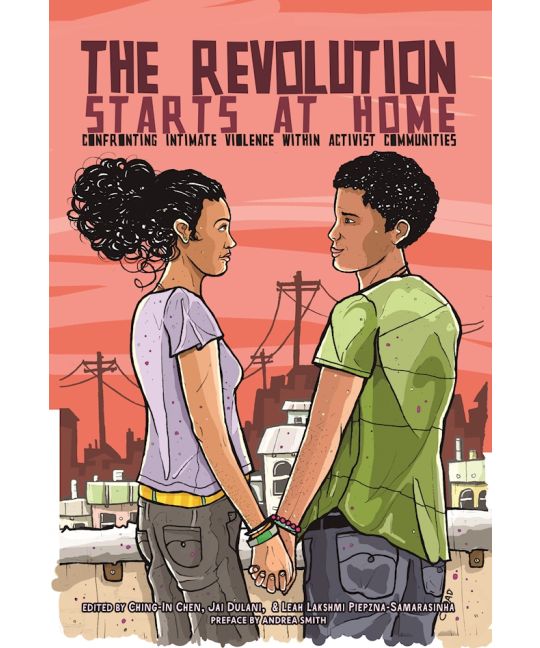
Edited By: Ching-In Chen; Jai Dulani; Leah Lakshmi Piepzna-Samarasinha
This watershed collection breaks the dangerous silence surrounding the “secret” of intimate violence within social justice circles and provides practical strategies for dealing with abuse and creating safety without relying on the coercive power of the state.
The Revolution Starts at Home is as urgently needed today as when it was first published. This watershed collection breaks the dangerous silence surrounding the “secret” of intimate violence within social justice circles. Just as importantly, it provides practical strategies for dealing with abuse and creating safety without relying on the coercive power of the state. It offers life-saving alternatives for survivors, while building a movement where no one is left behind.
Black Freedom Struggle in Urban Appalachia
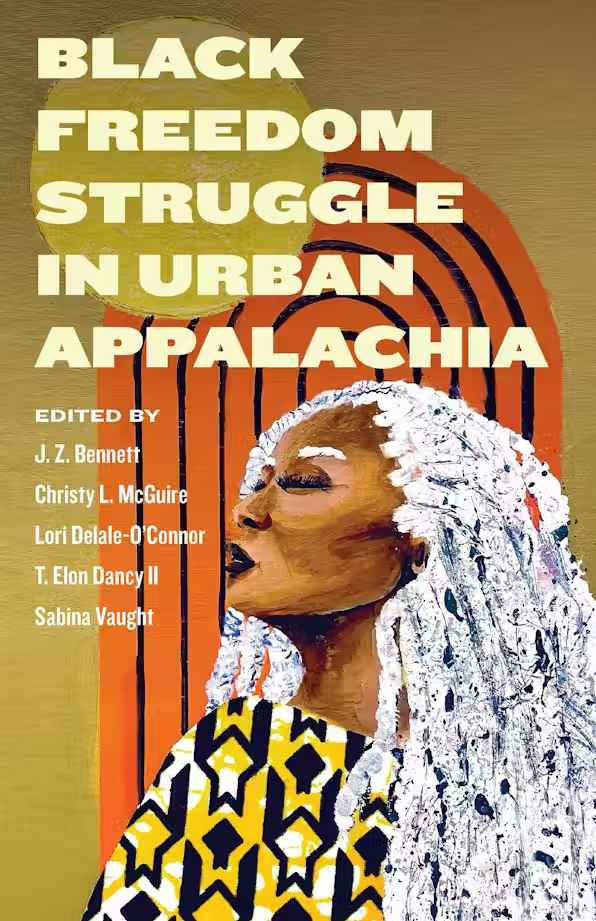
Edited by J. Z. Bennett, Christy McGuire, Lori Delale-O’Connor, T. Elon Dancy, II and Sabina Vaught
The largest urban center in Appalachia, Pittsburgh has long been a hub of Black freedom work. It has also been an enduring center of carcerality in the United States. Local experiences reflect a strong tradition of resisting systemic antiblackness, state and corporate divestment, repression, and broader carceral forces and highlight Pittsburgh’s record of labor radicalism, environmental activism, and community educational efforts.
Black Freedom Struggle in Urban Appalachia explores the interplay of creative self-determination, intellectual insurgency, and political education in Pittsburgh. This collection gathers dynamic artists, thinkers, and organizers, all contributing unique perspectives through essays, poems, scholarly chapters, interviews, and imagery. Positioning Pittsburgh as a pivotal space within the region while proposing an anti-carceral framework for understanding education, the anthology examines how people live the struggle for freedom and broadens discussions about the prison-industrial complex, labor, and place in Appalachia—sparking questions motivated by a shared commitment to liberation.
By fostering dialogue among contributors and elevating diverse forms of analysis, Black Freedom Struggle in Urban Appalachia offers a valuable resource for educators, students, creatives, activists, policymakers, and communities alike, encouraging us all to forge stronger connections and continue the fight for a free world.
To Belong Here: A New Generation of Queer, Trans, and Two-Spirit Appalachian Writers
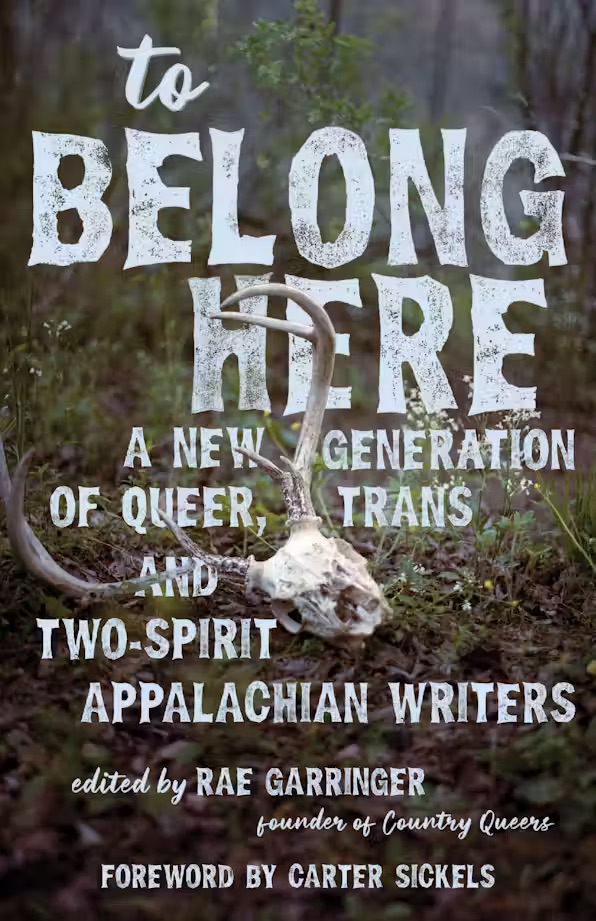
Edited by Rae Garringer
This Book is Free and Yours to Keep: Notes from the Appalachian Prison Book Project
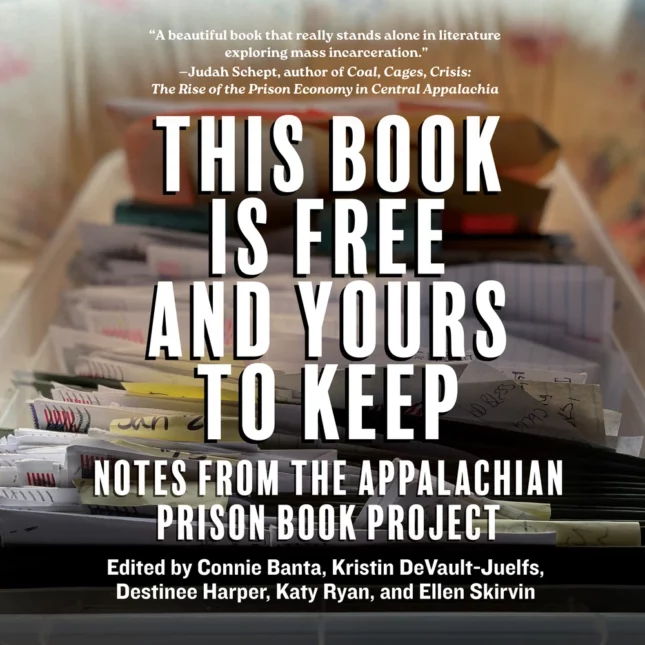
Edited by Connie Banta, Kristin DeVault-Juelfs, Destinee Harper, Katy Ryan, Ellen Skirvin
This Book Is Free and Yours to Keep presents an engaging collection of letters and artwork by people in prison that highlights the crucial work done by the Appalachian Prison Book Project (APBP), a nonprofit that provides books to incarcerated people in West Virginia, Virginia, Tennessee, Kentucky, Ohio, and Maryland. Through the words of people directly impacted by the criminal punishment system, the collection provides uncommon insight into reading practices and everyday life in prisons and jails while being an inspiration for prison book projects, prison reform, and abolition.
Simultaneously communicating the vital importance of access to books and education, and conveying the power of community, the letters sent to APBP by incarcerated people spark conversations about racism, poverty, and incarceration and shed light on the movement for accountability for state violence. This Book Is Free and Yours to Keep elucidates the violence and neglect perpetuated by carceral systems and offers a way forward based on solidarity and collaboration.
Theory of Water: Nishnaabe Maps to the Times Ahead

By Leanne Betasamosake Simpson
A genre-bending exploration of that most elemental force—water—through Indigenous storytelling, personal memory, and the work of influential artists and writers
For many years, Leanne Betasamosake Simpson took solace in skiing—in all kinds of weather, on all kinds of snow across all kinds of terrain, often following the trail beside a beloved creek near her home. Recently, as she skied on this path against the backdrop of uncertainty, environmental devastation, rising authoritarianism and ongoing social injustice, her mind turned to the water in the creek and an elemental question: What might it mean to truly listen to water? To know water? To exist with and alongside water?
So began a quest to understand her people’s historical, cultural, and ongoing interactions with water in all its forms (ice, snow, rain, perspiration, breath). Pulling together these threads, Leanne began to see how a “Theory of Water” might suggest a radical rethinking of relationships between beings and forces in the world today. In this inventive work, Simpson draws on Nishnaabeg origin stories while artfully weaving the work of influential writers and artists alongside her personal memories and experience—and in doing so, reimagines water as a catalyst for radical transformation, capable of birthing a new world.
Theory of Water is a resonant exploration of an intricate, multi-layered relationship with the most abundant element on our planet—one that, as Simpson eloquently shows, is shaping our present even as it demands a radical rethinking of how we might achieve a just future.
No Cop City, No Cop World: Lessons from the Movement
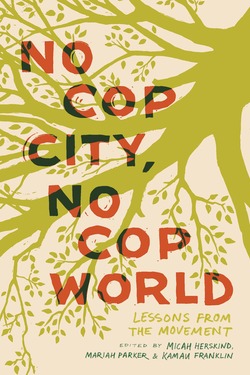
Edited by Micah Herskind, Mariah Parker, and Kamau Franklin
A collection of essays from the Stop Cop City movement on the fight for police abolition and for a liveable planet for all, with gripping reporting from activists on the ground and rousing articles from renowned radical academics
The Stop Cop City movement is a decentralized effort to stop the construction of a $120 million police training facility and the destruction of 170 acres of the Weelaunee Forest outside of Atlanta, Georgia. This is the first collection of essays bringing together organizers and activists who have been involved in the years-long struggle to Stop Cop City. Connecting movements for environmental justice, police abolition, and Indigenous sovereignty, this expansive collection highlights the strategy, tactics, and ideologies that transformed a local collective action into a powerful international movement.
Featuring the voices of forest defenders, environmental justice advocates, political prisoners, Indigenous activists, abolitionists, educators, legal scholars, and academics, these wide-ranging essays explore the history of the intersectional movement, the diverse tactics embraced by activists, tributes to Tortuguita, the 26-year-old queer Indigenous forest defender murdered by Georgia State Patrol troopers, and the intense police and legal repression faced by organizers. Making critical connections between oppression and resistance at home and abroad, the movement to Stop Cop City has expanded to a fight against a Cop World.
Decolonizing Language and Other Revolutionary Ideas
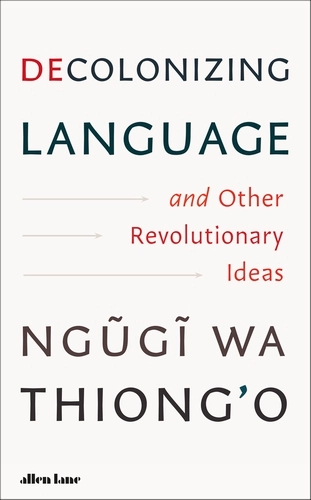
By Ngũgĩ wa Thiong’o
Who owns language? In Decolonizing Language and Other Revolutionary Ideas, Ngugi wa Thiong’o presents a series of essays that build on his vast wealth of work on language and its constructive role in national culture, history, and identity. Intricate, nuanced and accessible, it reaffirms the revolutionary power of African languages to fight back against both the psychic and material impacts of colonialism, past and present.
With immense relevance to our present moment, Decolonizing Language and Other Revolutionary Ideas is a brilliant distillation of the enduring themes of Ngugi’s work and a vital addition to the library of one of the world’s greatest and most provocative writers
Holler: A Graphic Memoir of Rural Resistance
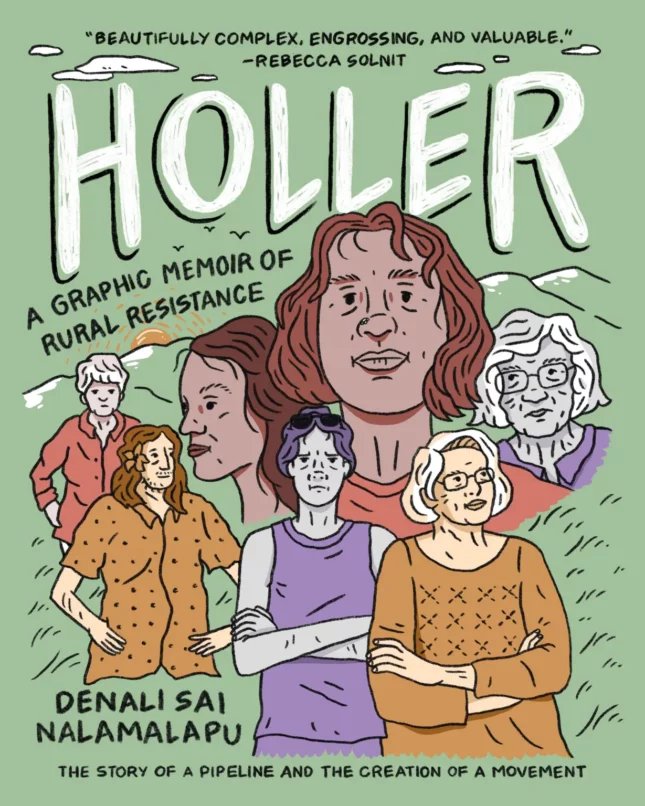
By Denali Sai Nalamalapu
An “important piece of activist art”, this beautiful graphic memoir tells the story of six hopeful activists in Appalachia who had the courage to resist against a threat to their community (Margaret Killjoy).
Drawing from original interviews with the author, Holler is an illustrated look at six inspiring changemakers. Denali Nalamalapu, a climate organizer in their own right, introduces readers to the ordinary people who became resisters of the Mountain Valley Pipeline, a project that spans approximately 300 miles from northwestern West Virginia to southern Virginia—a teacher, a single mother, a nurse, an organizer, a photographer, and a seed keeper.
In West Virginia, Becky Crabtree, grandmother of five, chains herself to her 1970s Ford Pinto to stop construction from destroying her farm. Farther south, in Virginia, young organizer Michael James-Deramo organizes mutual aid to support community members showing up to protest the pipeline expansion. These (and more) are the stories of everyday resistance that show what difference we can make when we stand up for what we love, and stand together in community. When the world tells these resisters to sit down and back off, they refuse to give up.
More than anything, Holler is an invitation to readers everywhere searching for their own path to activism: sending the message that no matter how small your action is, it’s impactful. The story of the Mountain Valley Pipeline is one we can all relate to, as each and every one of our communities faces the increasing threats of the climate crisis, and the corporations that benefit from the destruction of our natural resources. Holler is a moving and deeply accessible—and beautifully visual—story about change, hope, and humanity.
